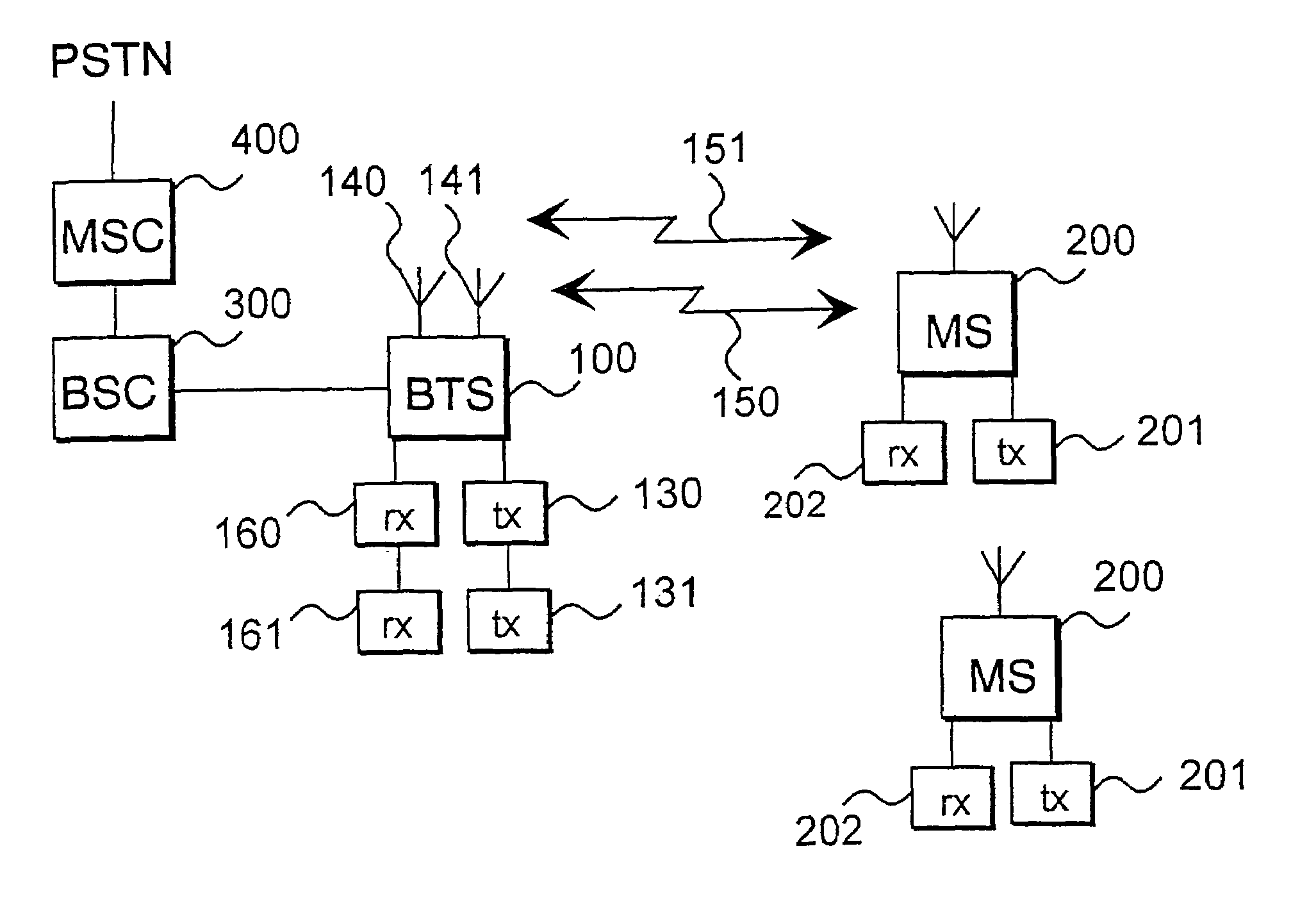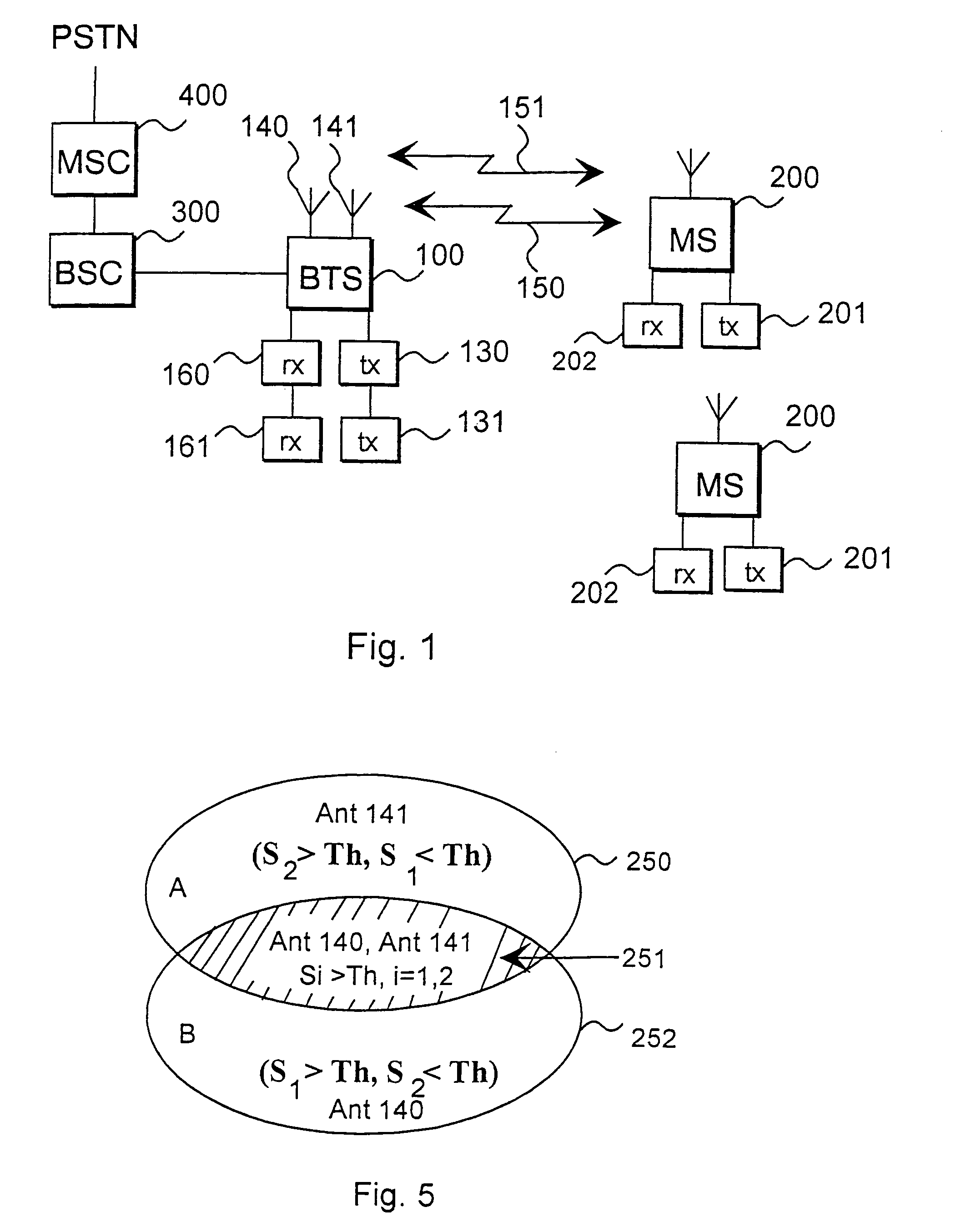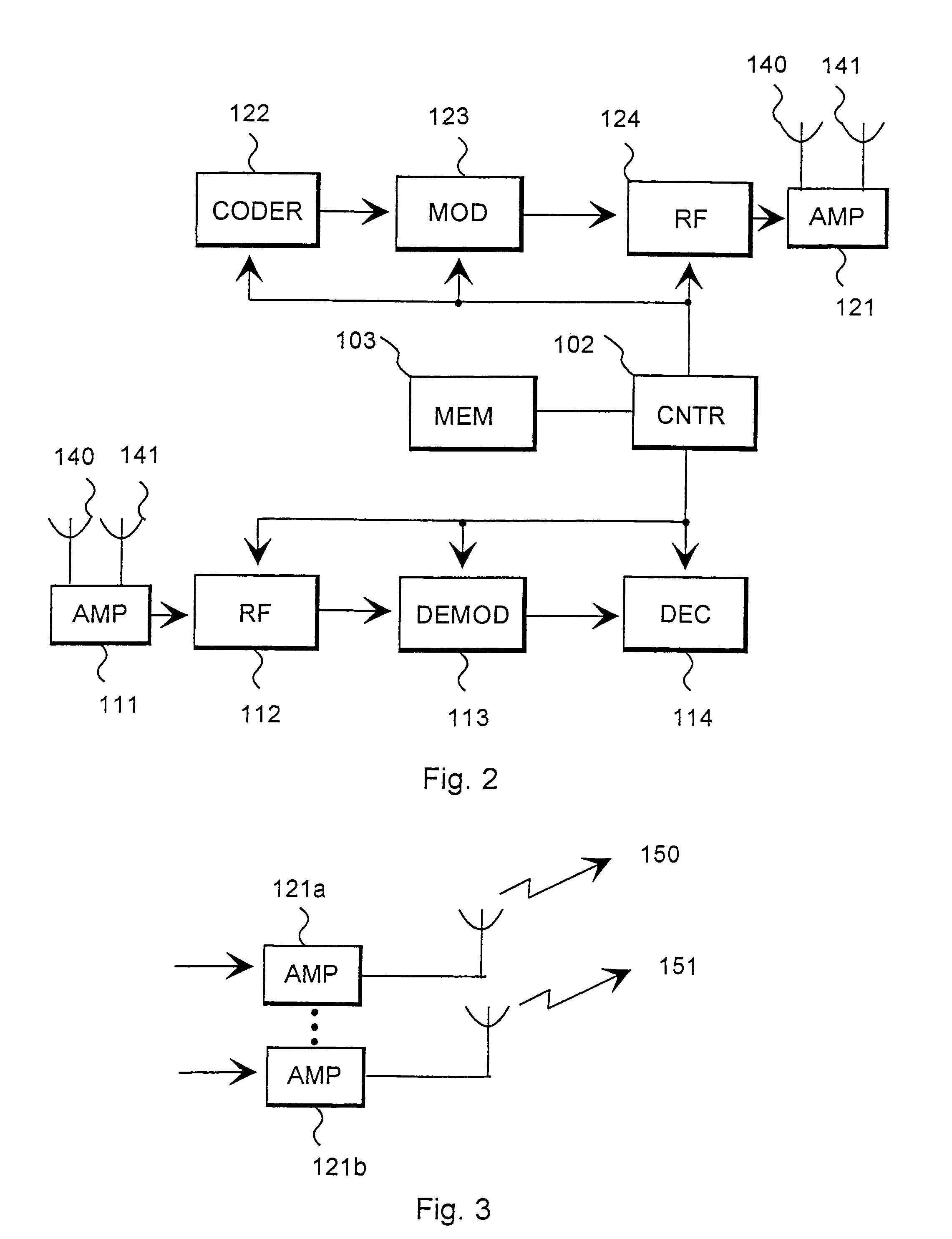Data transmission method and radio system
a data transmission and radio system technology, applied in the field of data transmission methods, can solve the problems of large differences in load, inoptimized selection method, and uneven load in the power amplifier of the transceiver, and achieve the effects of improving the reliability of antenna selection, reducing load unevenness, and implementing a flexible operating radio system
- Summary
- Abstract
- Description
- Claims
- Application Information
AI Technical Summary
Benefits of technology
Problems solved by technology
Method used
Image
Examples
Embodiment Construction
[0026]FIG. 1 shows a radio system comprising a base station 100, subscriber terminals 200, a base station controller 300 and a mobile switching centre 400. The subscriber terminals 200 can be mobile phones, for instance. The base station comprises transmitters 130, 131 and receivers 160, 161. In addition, the base station comprises antennas 140, 141 with which the base station transmits and receives signals. The base station transmits to a subscriber terminal and receives from a subscriber terminal a signal 150 by means of its antenna 140. In addition, the base station transmits to a subscriber terminal and receives from a subscriber terminal a signal 151 by means of its antenna 141. The figure shows that the subscriber terminal comprises a transmitter 201 and a receiver 202. The subscriber terminal can receive signals transmitted from the various antennas of the base station. The signals containing the same information received by the subscriber terminal can also be transmitted by ...
PUM
 Login to View More
Login to View More Abstract
Description
Claims
Application Information
 Login to View More
Login to View More - R&D
- Intellectual Property
- Life Sciences
- Materials
- Tech Scout
- Unparalleled Data Quality
- Higher Quality Content
- 60% Fewer Hallucinations
Browse by: Latest US Patents, China's latest patents, Technical Efficacy Thesaurus, Application Domain, Technology Topic, Popular Technical Reports.
© 2025 PatSnap. All rights reserved.Legal|Privacy policy|Modern Slavery Act Transparency Statement|Sitemap|About US| Contact US: help@patsnap.com



